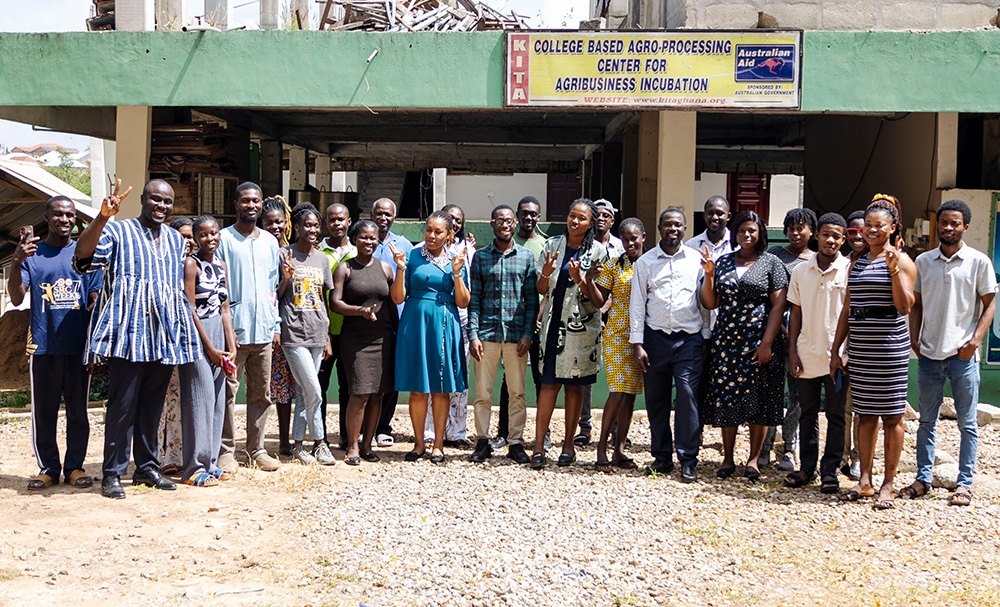The Kwame Nkrumah University of Science and Technology (KNUST) Nutrition and Sustainable Agri-food Collaborative, in partnership with the Mastercard Foundation under the Nkabom Collaborative, has expanded its transformative Trainer of Trainers (ToT) programme to the Kumasi Institute of Tropical Agriculture (KITA) in the Ejisu Municipality.
The ten-day training exposed 30 participants to modules on mindset transformation, opportunity identification, business planning, and the use of practical tools such as the problem tree and the Nkabom Hybrid Business Model Canvas to refine agribusiness concepts into viable ventures.
Participant Kathleen Aker Kabutey described the sessions as highly engaging and more practical than traditional classroom delivery.
She said that before the training she struggled to develop business plans confidently, but tools such as the problem tree had helped her identify root causes and design workable solutions.
“The Nkabom Hybrid Business Model Canvas has also helped me chart a clear path towards preparing a strong business plan,” she added.
For other participants, the programme reshaped their understanding of agricultural entrepreneurship.
Nuakeh Kofi Akwetey said he initially assumed the workshop would focus narrowly on technical agricultural practices but found it to be a comprehensive development programme aimed at refining agribusiness ideas.
“I thought I already knew how to set up a business, but the training has placed me in a better position to take the necessary steps to turn my ideas into reality. I am now developing a plan to process chicken into products such as sausages, giblets, pies, and cutlets, sourcing supplies all year round from poultry farmers,” he said.
Facilitators at KITA commended the Nkabom Collaborative’s approach, highlighting its relevance to addressing unemployment and enhancing youth participation in agribusiness.
KITA Programme Officer, Ibrahim Alabani, said the practical orientation of the modules aligned with the institute’s mandate.
He noted that the training had significantly shifted students’ mindsets towards entrepreneurial thinking and that the models introduced were tailored to practical actions students could take to reduce unemployment.
“We are impressed with the support from the Nkabom Collaborative, but we also encourage continuous collaboration,” he said.


















